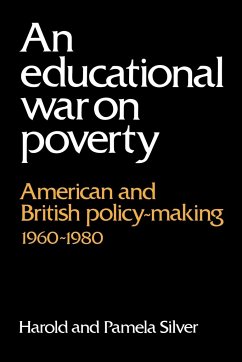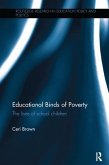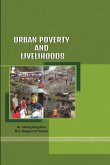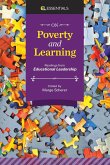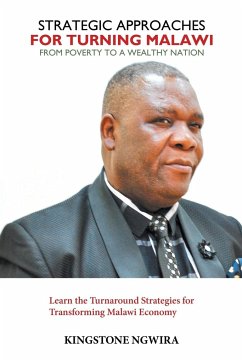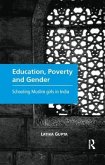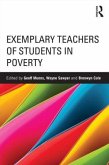An Educational War on Poverty represents a major contribution to the study of the recent social and educational history of Britain and the United States.
This book analyses the parallel, different and related aspects of the discovery of poverty in the late 1950s and early 1960s, and the role of education in the American 'war on poverty' from 1964, and in Britain from the appointment of the Plowden committee on primary schools. It examines changes in policy emphases, the relationship between research and policy, and the transatlantic interactions and silences involved. Based on archival and interview material the book offers new insights into the role of the Plowden committee in shifting attention from social class to poverty, and it discusses in both the American and British contexts the concepts and theories involved in the changing fortunes of the educational war on poverty in the 1960s and 1970s. An Educational War on Poverty represents a major contribution to the study of the recent social and educational history of Britain and the United States, and the range and depth of research, will make it an essential reference source for scholars and policy-makers on both sides of the Atlantic.
Review quote:
"In a landscape crowded with self-proclaimed education presidents and governors, this book should be required reading. Harold and Pamela Silver, the authors of numerous works on educational policy toward the disadvantaged, have produced a well-written account detailing U.S. and British debates on how education could address the poverty issue in each nation...this book is essential reading to anyone who wishes to better understand the successes and failures in Britain and the United States, if only to chart where we might go in the future."
Social Science Quarterly
"The Silvers have written a marvelous book, recreating the tensions and aspirations of a generation of policy analysts and reformers in the two countries....if one wants to relook at the origins of the educational war on poverty, this is the place to start."
Marvin Lazerson, Historical Studies in Education
"The book is in the finest tradition of comparative public policy research. It also serves as a reminder, to those of us who tend to concentrate on single-nation studies, how valuable such comparative studies can be....the volume is an extremely valuable resource that readers will return to on numerous occasions."
John F. Witte, American Political Science Review
Table of contents:
Acknowledgments; 1. Introduction: a proper complexity; Part I. A Pattern Of Events: United States: 2. Poverty and education: changing concerns and concepts; 3. Education: children and intervention; 4. Learning their way out of poverty?; 5. Education and the prime target; 6. An effort to understand; Part II. A Pattern Of Events: Britain: 7. Advancing from poverty?; 8. Opportunity, equality and social class; 9. Sounds and silences; 10. Plowden: direction finding; 11. Plowden: making choices; Part III. Following Through: 12. United States: planned and unplanned variation; 13. Britain: units of concern; 14. Directions; Interviews and consultation; Bibliography; Index.
Hinweis: Dieser Artikel kann nur an eine deutsche Lieferadresse ausgeliefert werden.
This book analyses the parallel, different and related aspects of the discovery of poverty in the late 1950s and early 1960s, and the role of education in the American 'war on poverty' from 1964, and in Britain from the appointment of the Plowden committee on primary schools. It examines changes in policy emphases, the relationship between research and policy, and the transatlantic interactions and silences involved. Based on archival and interview material the book offers new insights into the role of the Plowden committee in shifting attention from social class to poverty, and it discusses in both the American and British contexts the concepts and theories involved in the changing fortunes of the educational war on poverty in the 1960s and 1970s. An Educational War on Poverty represents a major contribution to the study of the recent social and educational history of Britain and the United States, and the range and depth of research, will make it an essential reference source for scholars and policy-makers on both sides of the Atlantic.
Review quote:
"In a landscape crowded with self-proclaimed education presidents and governors, this book should be required reading. Harold and Pamela Silver, the authors of numerous works on educational policy toward the disadvantaged, have produced a well-written account detailing U.S. and British debates on how education could address the poverty issue in each nation...this book is essential reading to anyone who wishes to better understand the successes and failures in Britain and the United States, if only to chart where we might go in the future."
Social Science Quarterly
"The Silvers have written a marvelous book, recreating the tensions and aspirations of a generation of policy analysts and reformers in the two countries....if one wants to relook at the origins of the educational war on poverty, this is the place to start."
Marvin Lazerson, Historical Studies in Education
"The book is in the finest tradition of comparative public policy research. It also serves as a reminder, to those of us who tend to concentrate on single-nation studies, how valuable such comparative studies can be....the volume is an extremely valuable resource that readers will return to on numerous occasions."
John F. Witte, American Political Science Review
Table of contents:
Acknowledgments; 1. Introduction: a proper complexity; Part I. A Pattern Of Events: United States: 2. Poverty and education: changing concerns and concepts; 3. Education: children and intervention; 4. Learning their way out of poverty?; 5. Education and the prime target; 6. An effort to understand; Part II. A Pattern Of Events: Britain: 7. Advancing from poverty?; 8. Opportunity, equality and social class; 9. Sounds and silences; 10. Plowden: direction finding; 11. Plowden: making choices; Part III. Following Through: 12. United States: planned and unplanned variation; 13. Britain: units of concern; 14. Directions; Interviews and consultation; Bibliography; Index.
Hinweis: Dieser Artikel kann nur an eine deutsche Lieferadresse ausgeliefert werden.

